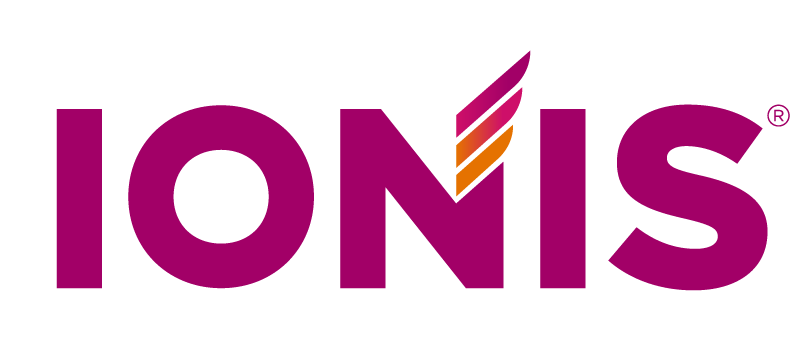Press Releases
Second-Generation Type 2 Diabetes Antisense Drug Improves Glucose Tolerance Tests in Normal Volunteers in Phase 1 Study
Isis Pharmaceuticals Initiates Phase 2 Program In Patients With Type 2 Diabetes
CARLSBAD, Calif., Sept. 16 /PRNewswire-FirstCall/ -- ISIS 113715 enhances insulin's ability to transport glucose, or blood sugar, into cells, according to data from a Phase 1 study. A primary characteristic of type 2 diabetes is inefficient use of glucose in spite of the availability of insulin. Correcting this defect is a goal in the management of the disease. ISIS 113715 is an antisense inhibitor of an exciting gene target for diabetes, protein tyrosine phosphatase (PTP-1B). Isis Pharmaceuticals, Inc. (Nasdaq: ISIS) is developing ISIS 113715. The company is initiating a Phase 2 clinical program in patients with type 2 diabetes based on a robust preclinical package along with these first human data, which were presented today at the Nucleic Acid World Summit in Boston.
Twenty healthy volunteers received ISIS 113715 or a placebo by parenteral administration for one week in the randomized, double-blind, dose-escalation Phase 1 trial. The pharmacologic activity of the two highest doses of ISIS 113715, 5.0 mg/kg and 7.5 mg/kg, was assessed with an intravenous glucose tolerance test, which measures the ability of insulin to normalize glucose (also called insulin sensitivity) after a glucose challenge. All volunteers that received ISIS 113715 (6 of 6) experienced the desired effect, increased insulin sensitivity. Less insulin was required to normalize glucose, without causing hypoglycemia. In contrast, insulin sensitivity was unchanged in placebo-treated volunteers (2 of 2). Hypoglycemia, or excessively low blood sugar, is an adverse effect observed with many currently available treatments for type 2 diabetes. ISIS 113715 was well tolerated.
"Improvement in glucose tolerance in normal volunteers, as produced by ISIS 113715, is encouraging. The improved insulin sensitivity without hypoglycemia we observed in this trial is consistent with results of preclinical studies in both normal and diabetic animal models," said Jon T. Holmlund, M.D., Isis' Vice President, Development. "We are rapidly moving ISIS 113715 into Phase 2 trials in patients and are optimistic about the drug's potential in the treatment of type 2 diabetes."
Isis is enrolling patients in an open-label, dose-escalation Phase 2 trial to further evaluate the drug's ability to regulate blood sugar levels in patients with type 2 diabetes. The trial is designed to evaluate various doses of ISIS 113715 over three months of treatment.
ISIS 113715 Preclinical Data
In preclinical studies, ISIS 113715 normalized blood sugar levels in multiple rodent models and improved glucose tolerance in normal and obese primates. In addition, ISIS 113715 did not produce hypoglycemia or weight gain, characteristics of many other type 2 diabetes treatments. ISIS 113715 has demonstrated consistent reduction of PTP-1B mRNA and protein levels in liver and fat, key tissues known to be important in the regulation of blood sugar levels.
About ISIS 113715 and PTP-1B
ISIS 113715 targets the gene encoding for PTP-1B, a phosphatase enzyme that appears to reduce insulin's ability to regulate blood sugar levels. The inhibition of PTP-1B may allow insulin receptors to stay active longer, allowing for more sugar uptake into cells, and thereby lowering blood sugar levels in the bloodstream. The compound's antisense mechanism of action may offer new treatment to patients who do not respond to currently available therapies such as the glitazones, sulfonylureas, and biguanides.
For years, pharmaceutical companies interested in diabetes research have actively pursued PTP-1B as a traditional small molecule drug target, but have considered the phosphatase enzyme, PTP-1B "undruggable" due to its similarity to other phosphatases that have a wide range of functions in the body. However, through the specificity of antisense technology, ISIS 113715 has demonstrated sufficient target precision to solely inhibit PTP-1B with no effect on other phosphatase family members.
ABOUT TYPE 2 DIABETES
According to the American Diabetes Association, diabetes affects nearly 17 million people and type 2 diabetes constitutes 90 percent of those cases.
ABOUT ISIS PHARMACEUTICALS, INC.
Isis Pharmaceuticals, Inc., is exploiting its expertise in RNA to discover and develop novel human therapeutic drugs. The company has successfully commercialized the world's first antisense product, and has 11 antisense products in development. In the company's GeneTrove™ program, Isis uses antisense technology as a tool to determine the function of genes and uses that information to direct the company's internal drug discovery research and that of its corporate partners. Through its Ibis Therapeutics™ program, Isis is developing a novel diagnostic tool to detect infectious organisms and is focused on the discovery of small molecule drugs that bind to RNA. As an innovator in RNA-based drug discovery and development, Isis is the owner or exclusive licensee of more than 1,200 issued patents worldwide. Additional information about Isis is available at www.isispharm.com .
This press release contains forward-looking statements about the potential of the investigational compound ISIS 113715 for type 2 diabetes and the potential of Isis' drug development programs. Any statement describing a goal, expectation, intention or belief of the company is a forward-looking statement and should be considered an at-risk statement. Such statements are subject to certain risks and uncertainties, particularly those inherent in the process of discovering, developing and commercializing drugs that are safe and effective for use as human therapeutics and financing such activities. Actual results could differ materially from those projected in this release. As a result, you are cautioned not to rely on these forward-looking statements. These and other risks concerning Isis' research and development programs are described in additional detail on Form 10-Q for the period ended June 30, 2003, which is on file with the U.S. Securities and Exchange Commission, copies of which are available from the company.
GeneTrove™ and Ibis Therapeutics™ are trademarks of Isis Pharmaceuticals, Inc.
SOURCE Isis Pharmaceuticals, Inc.
